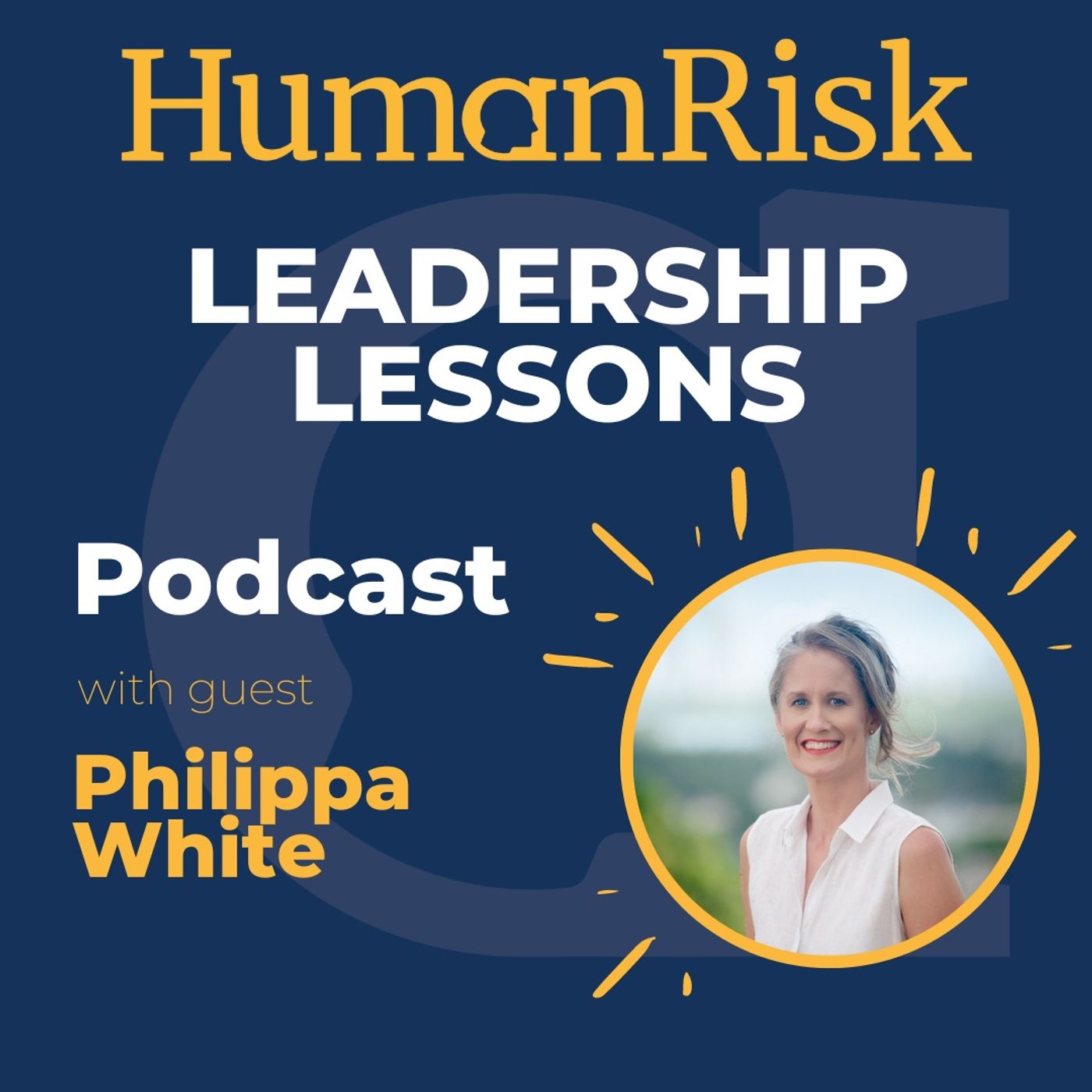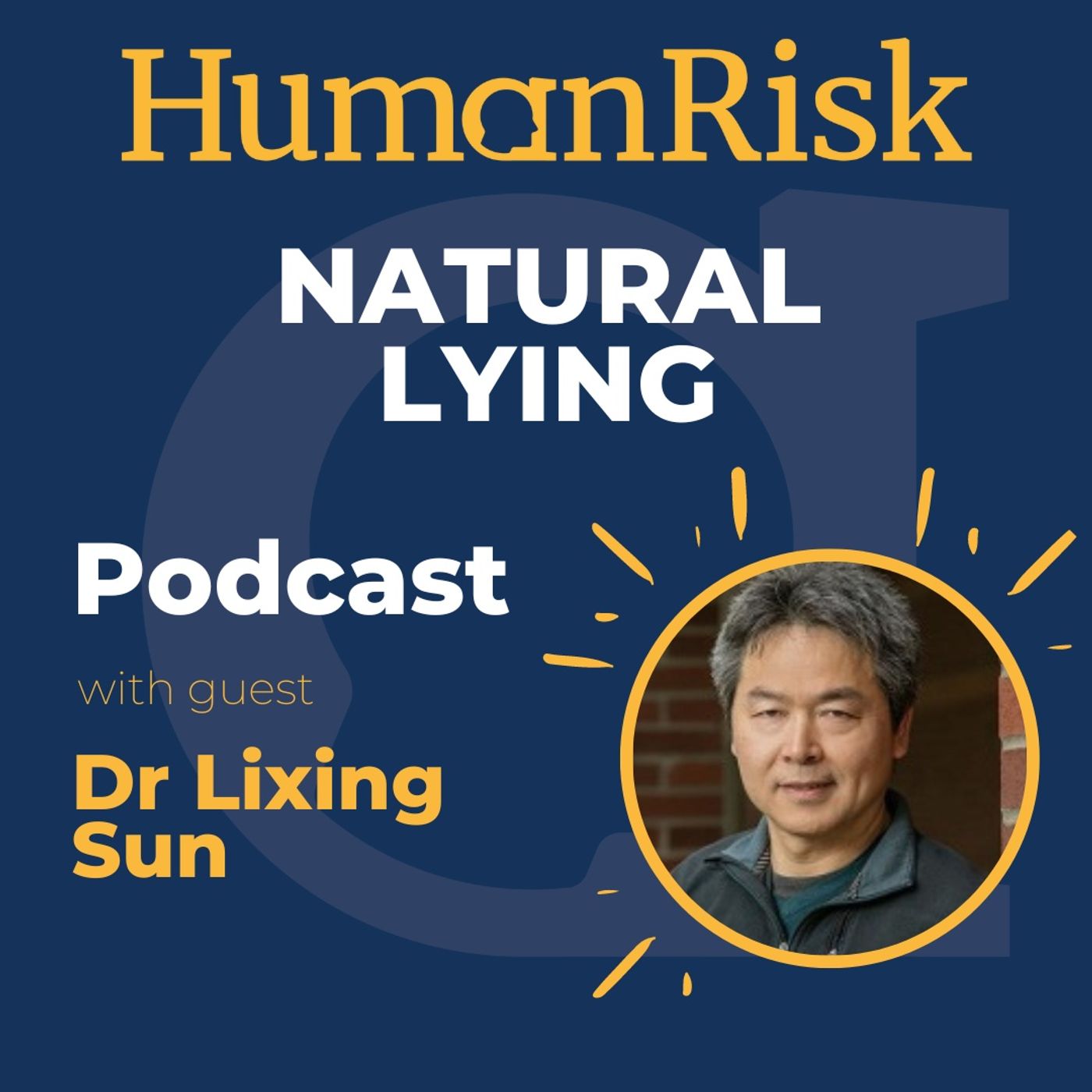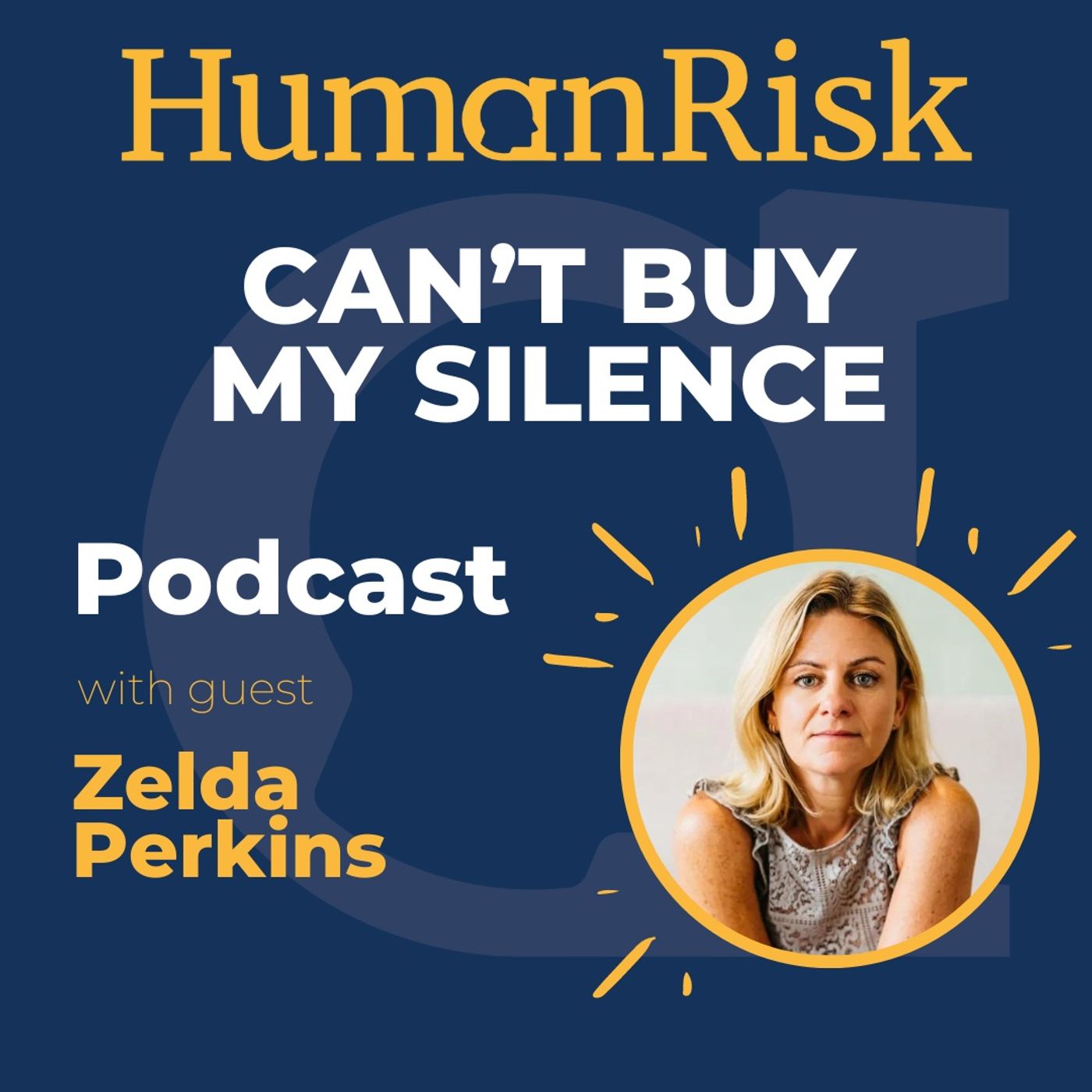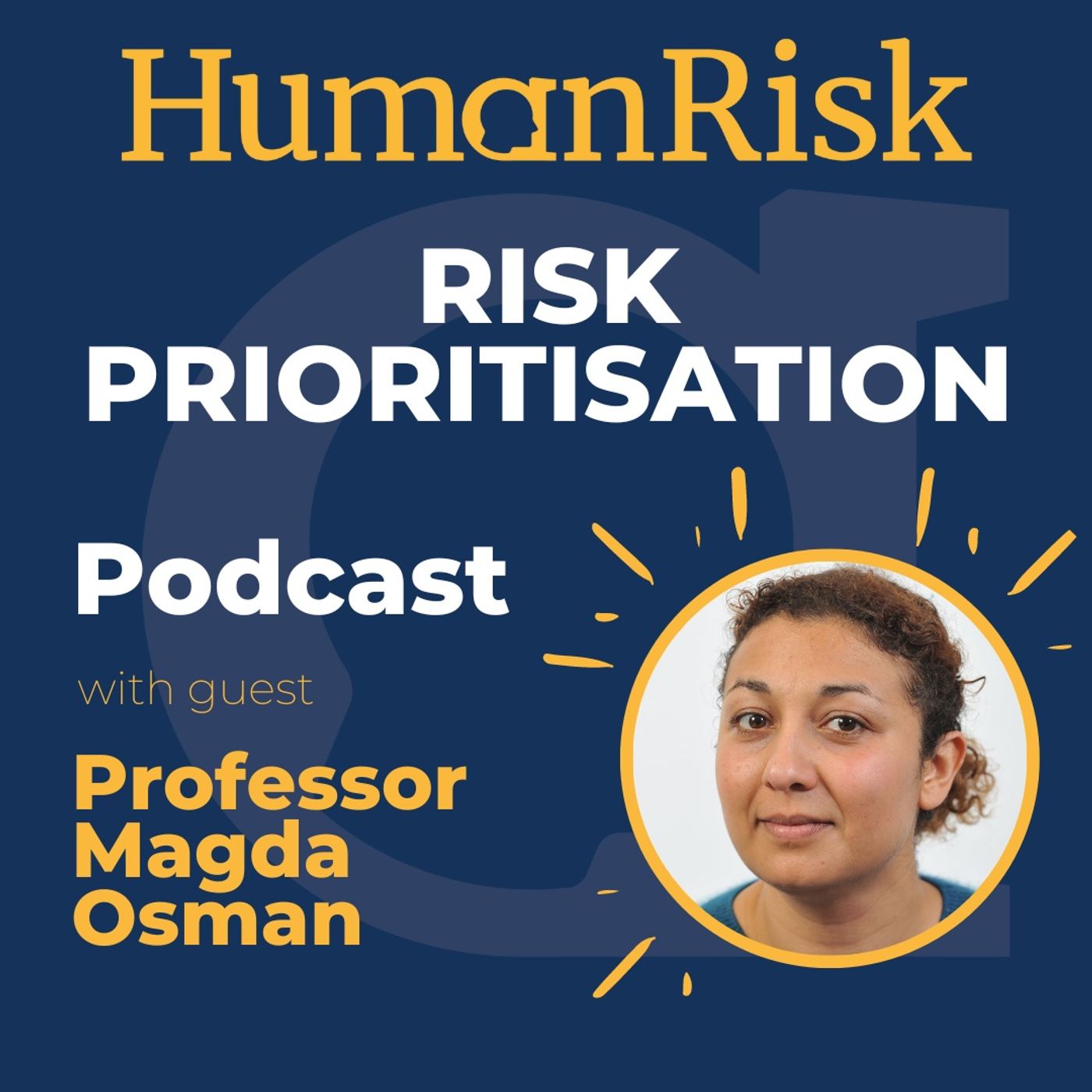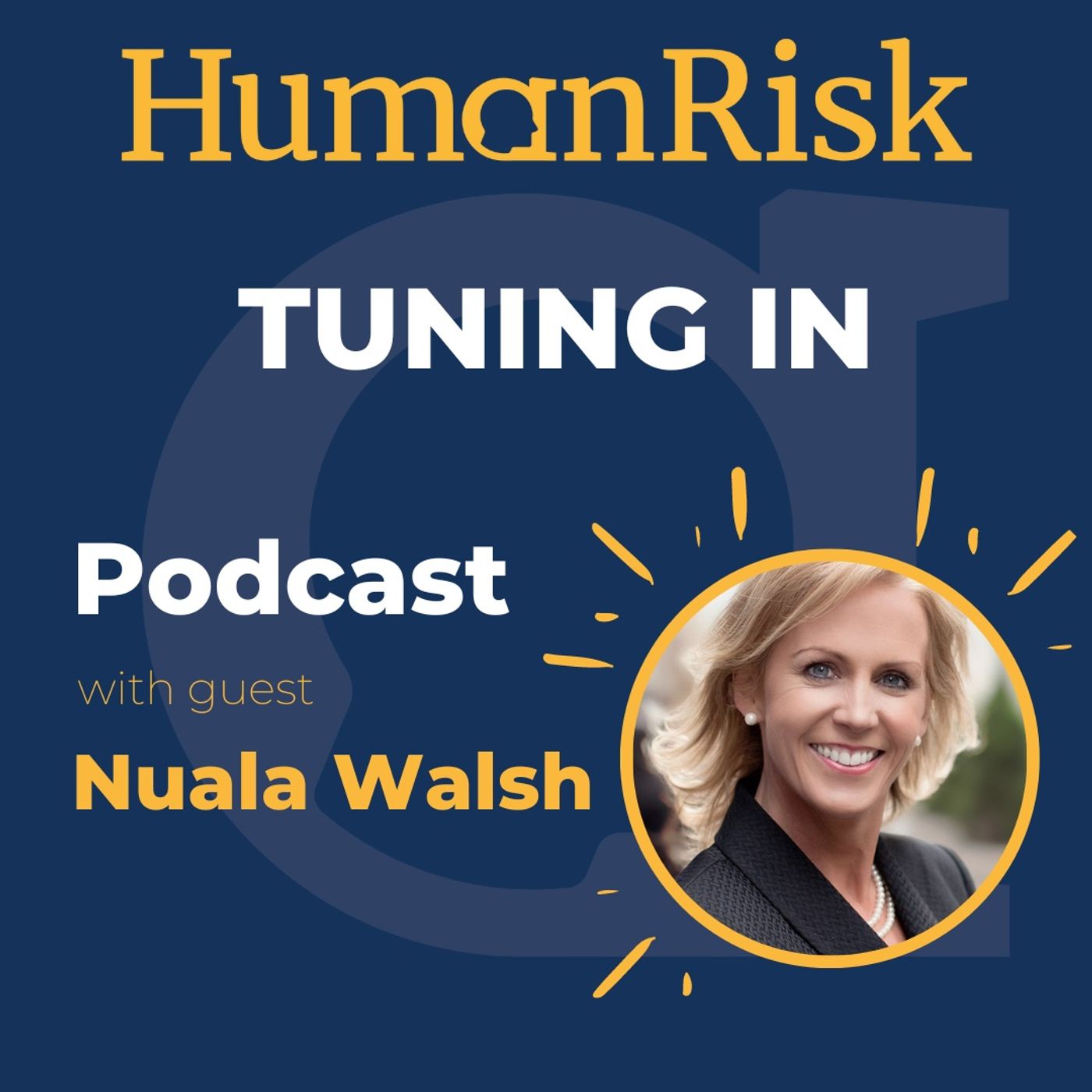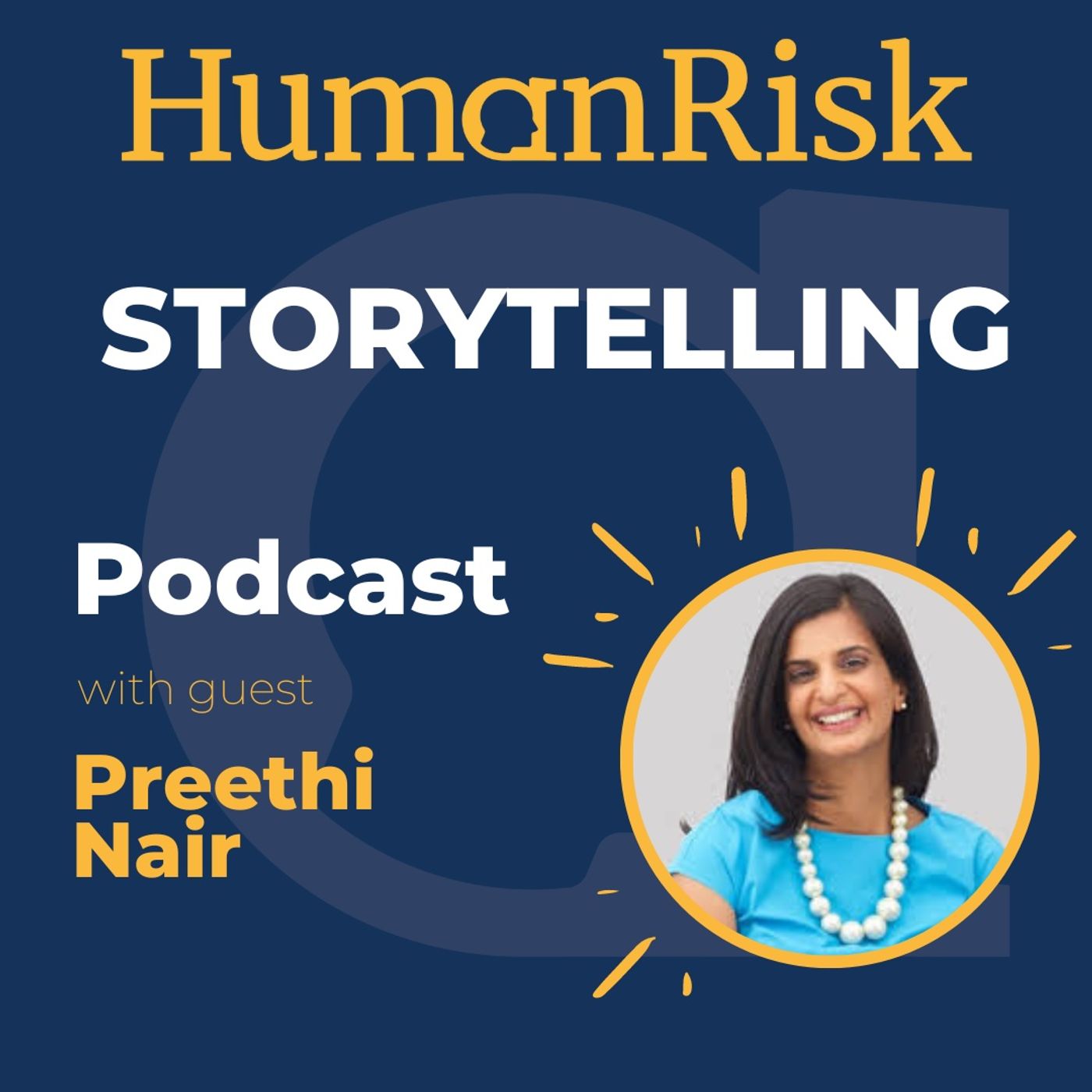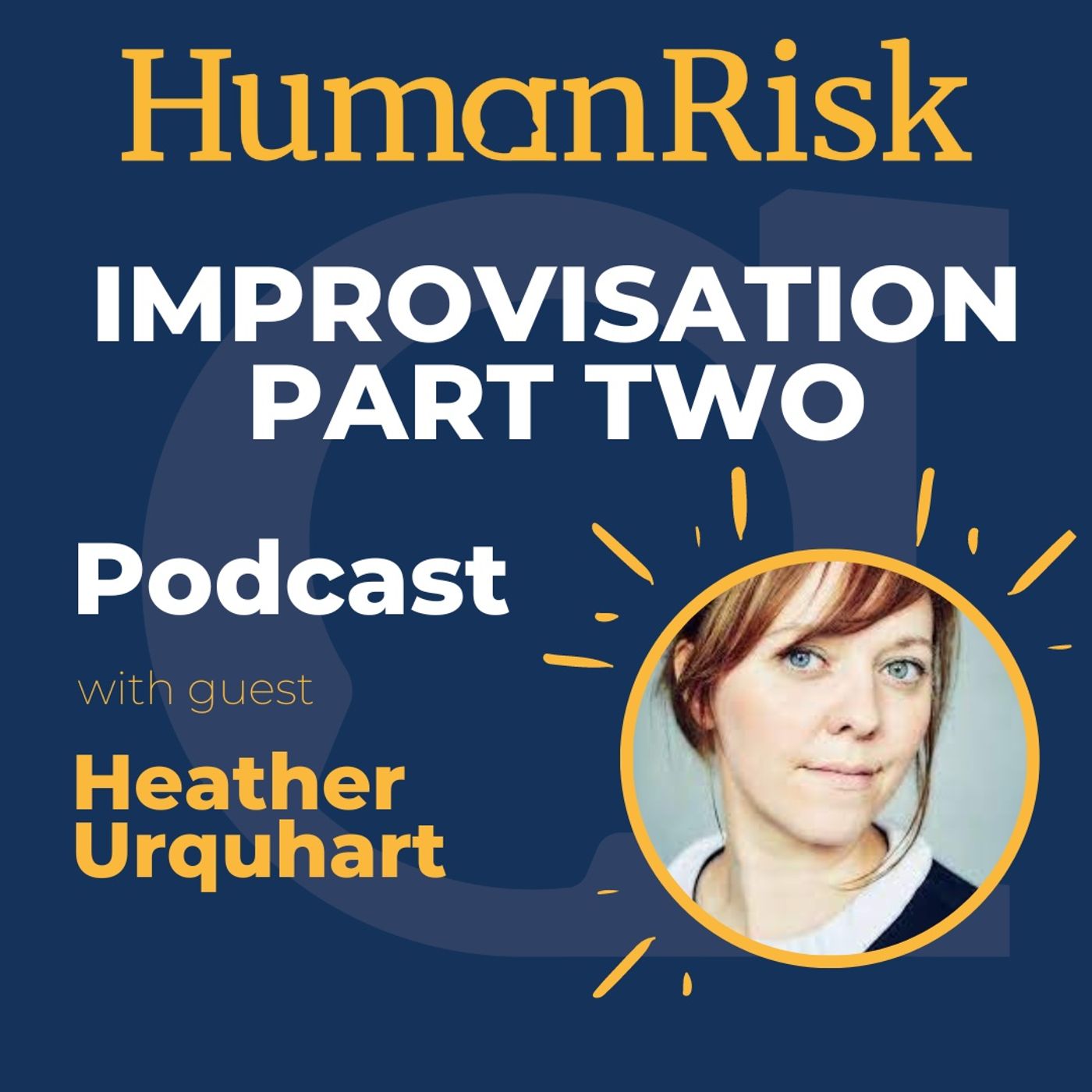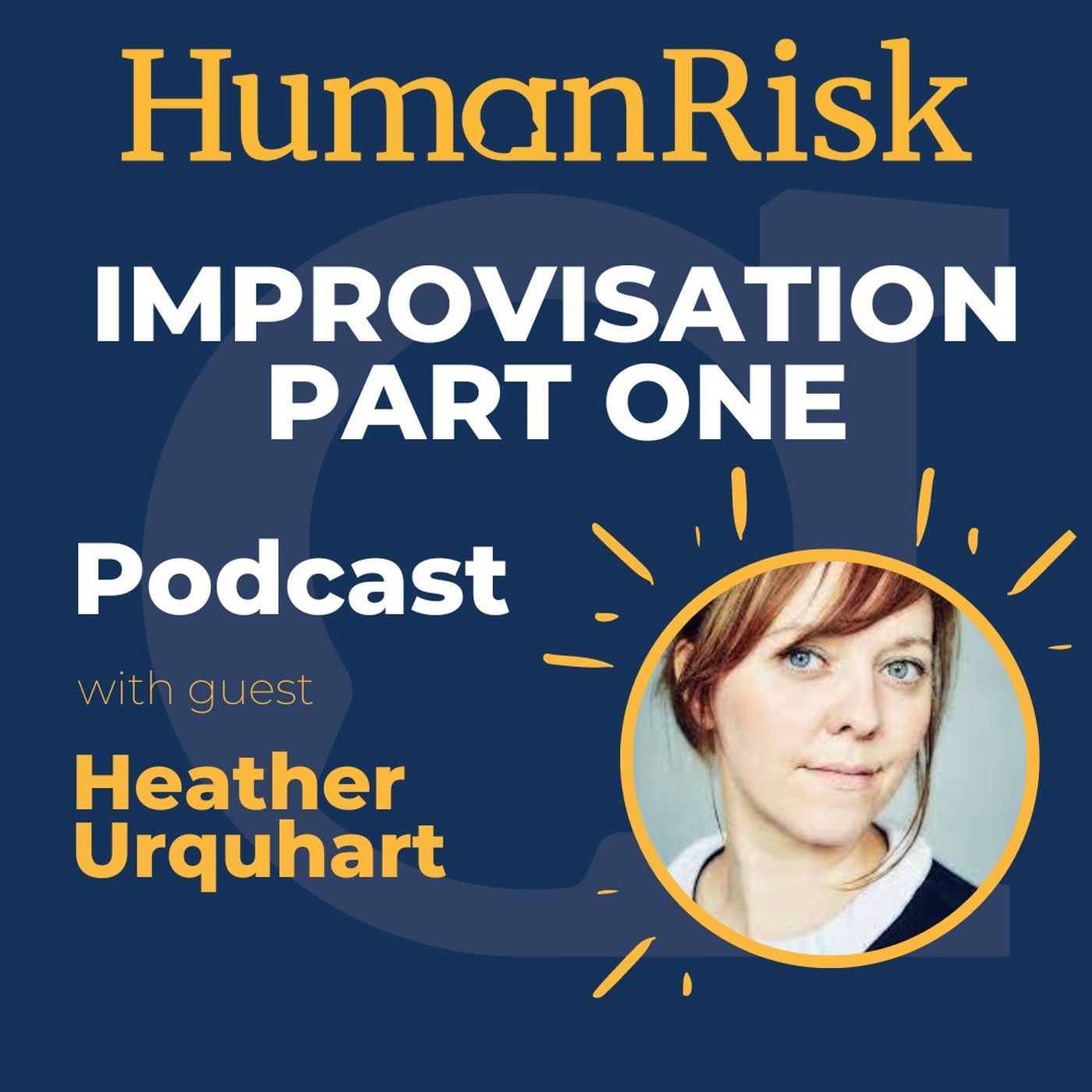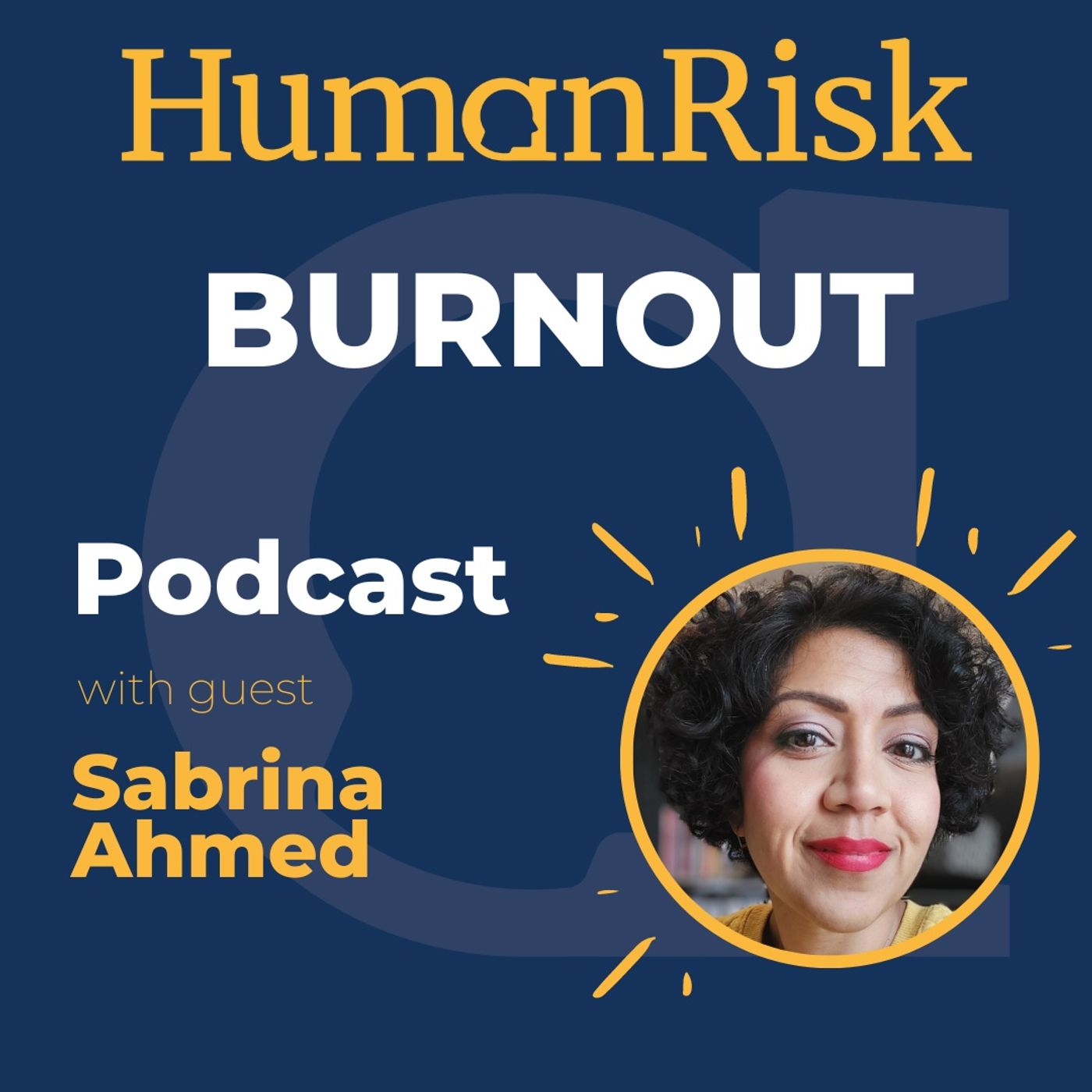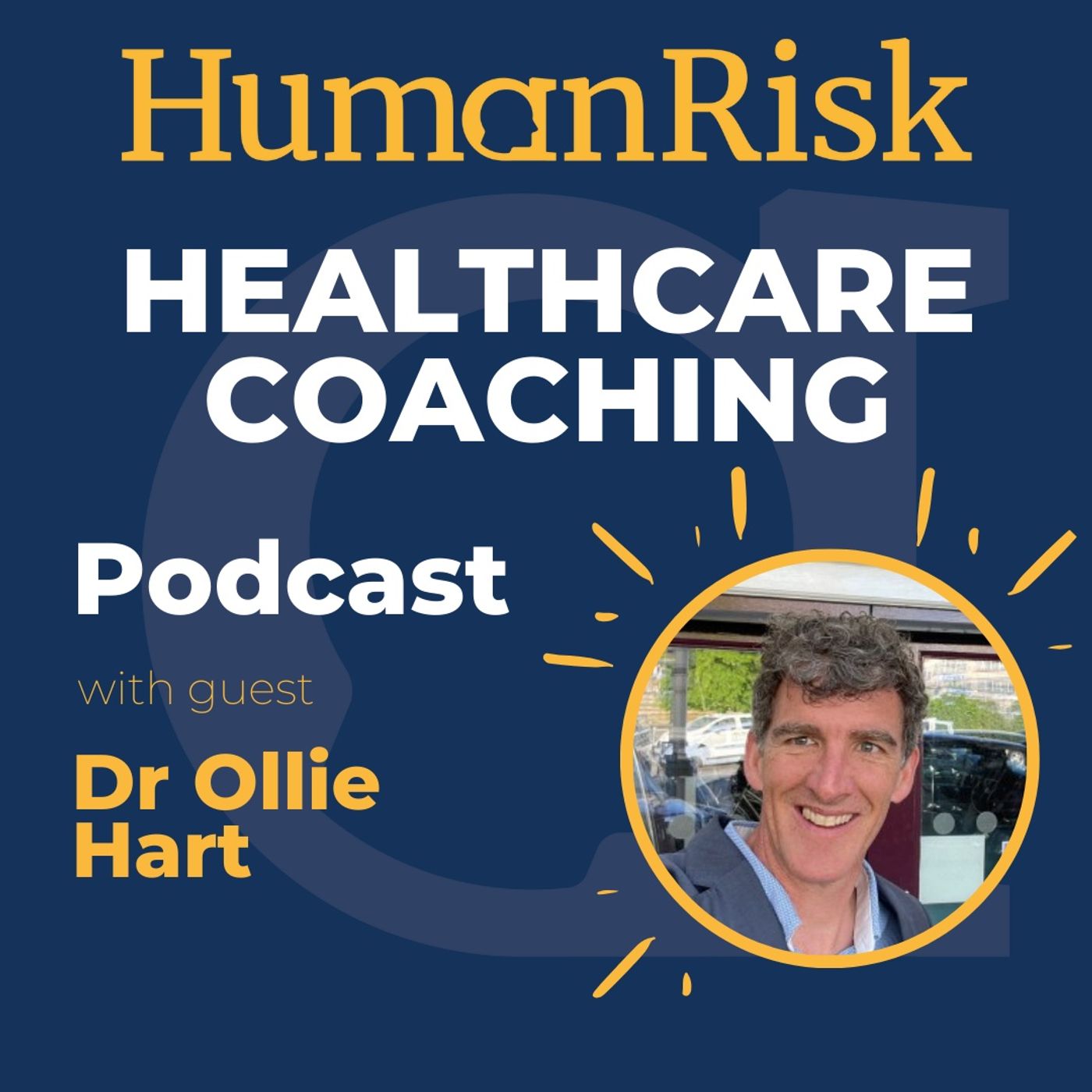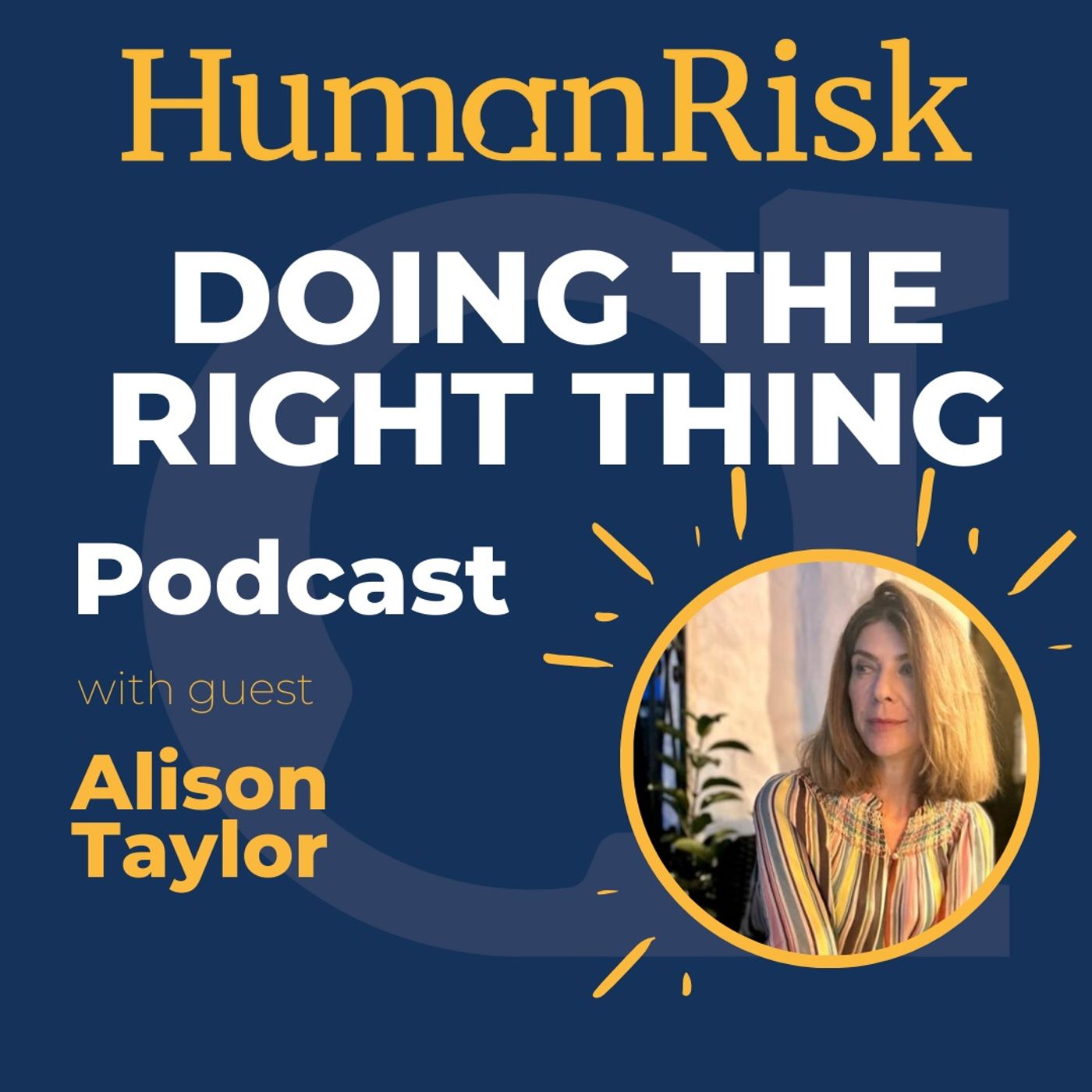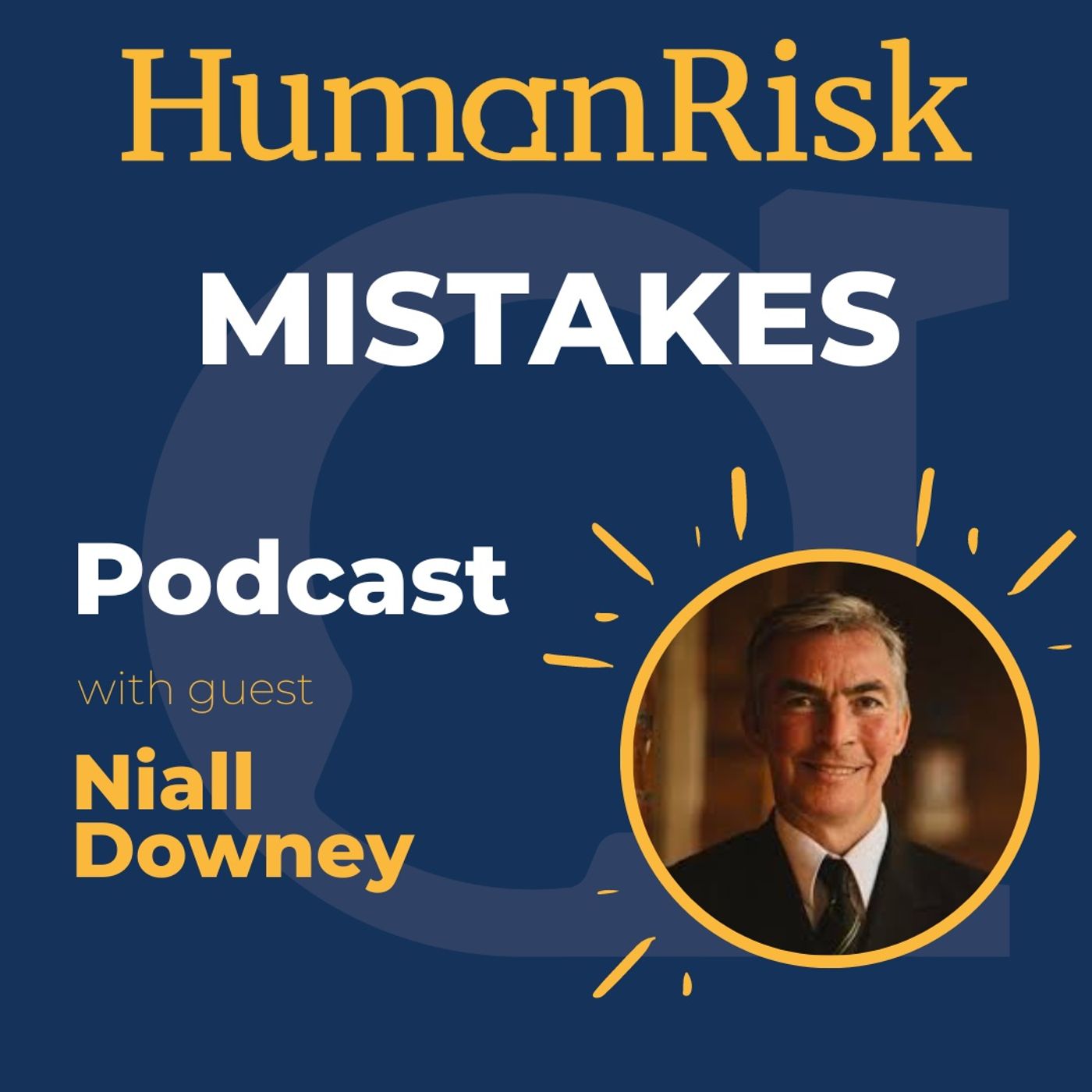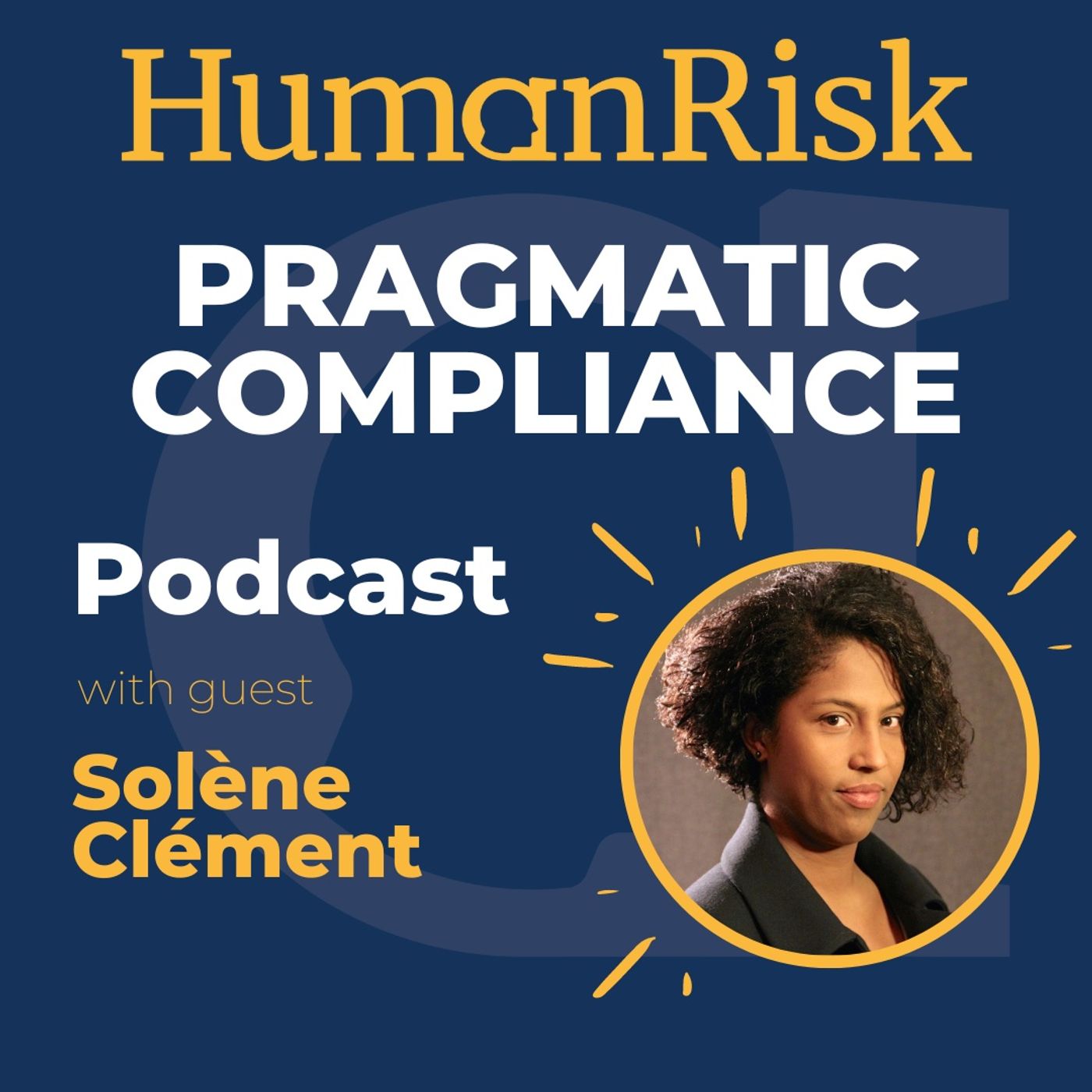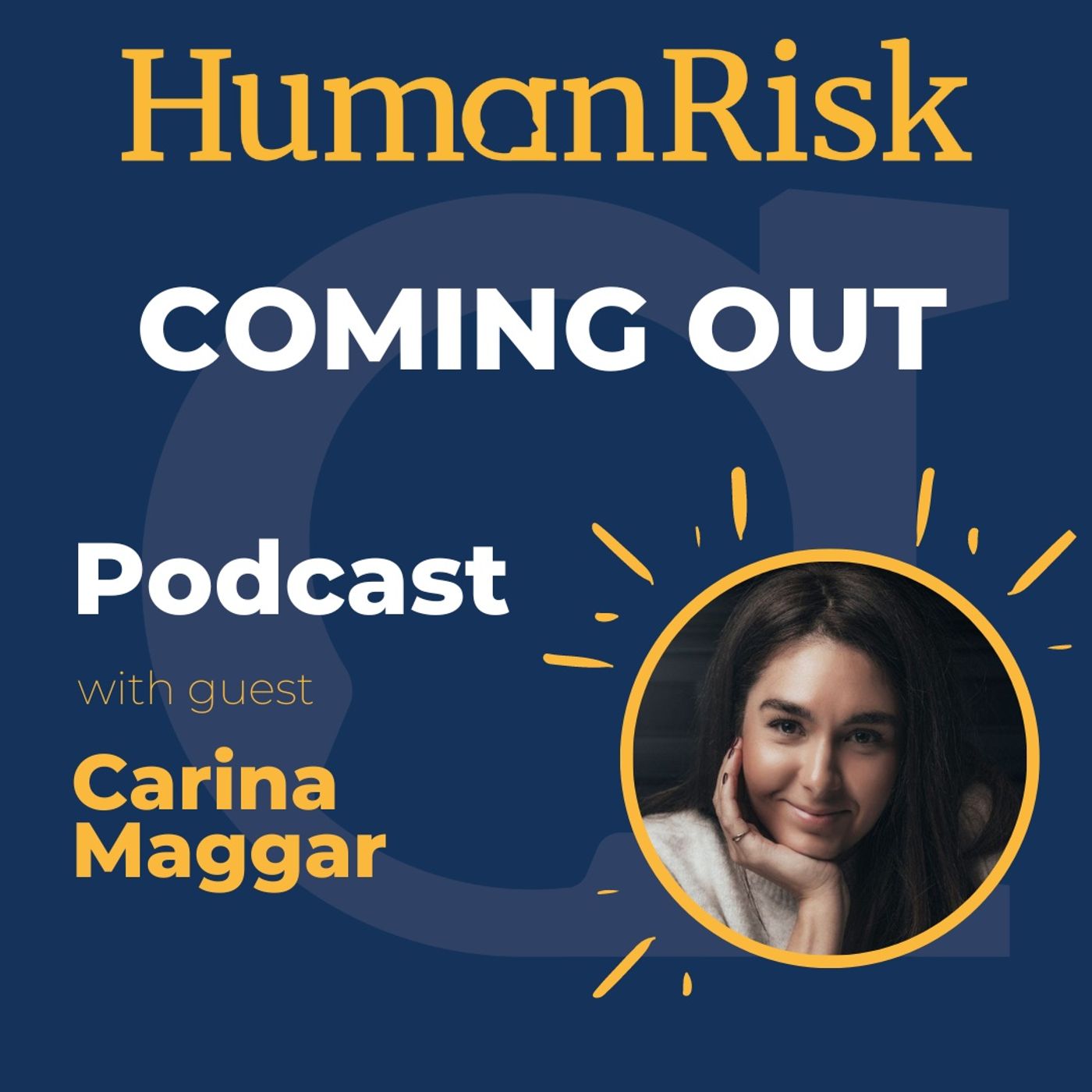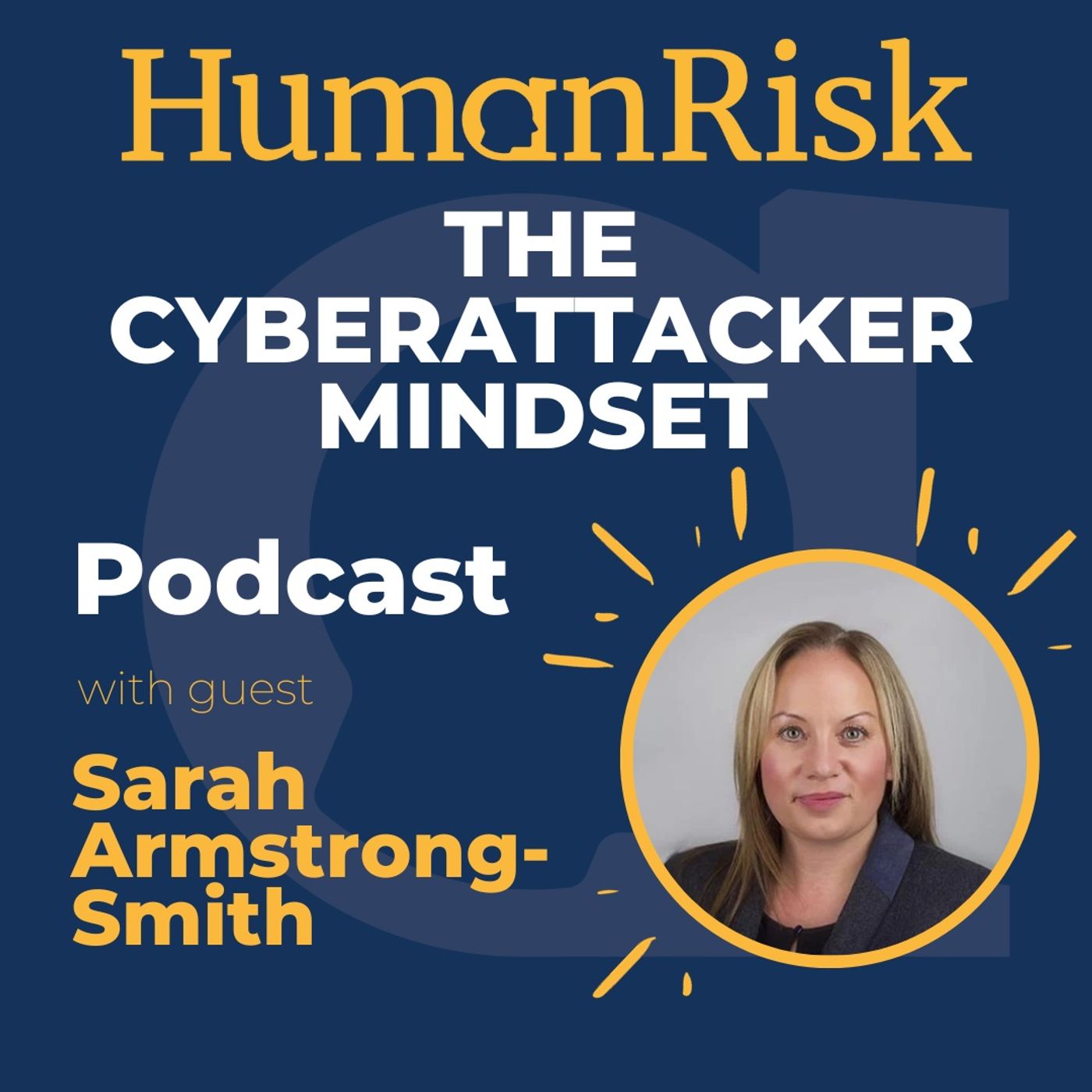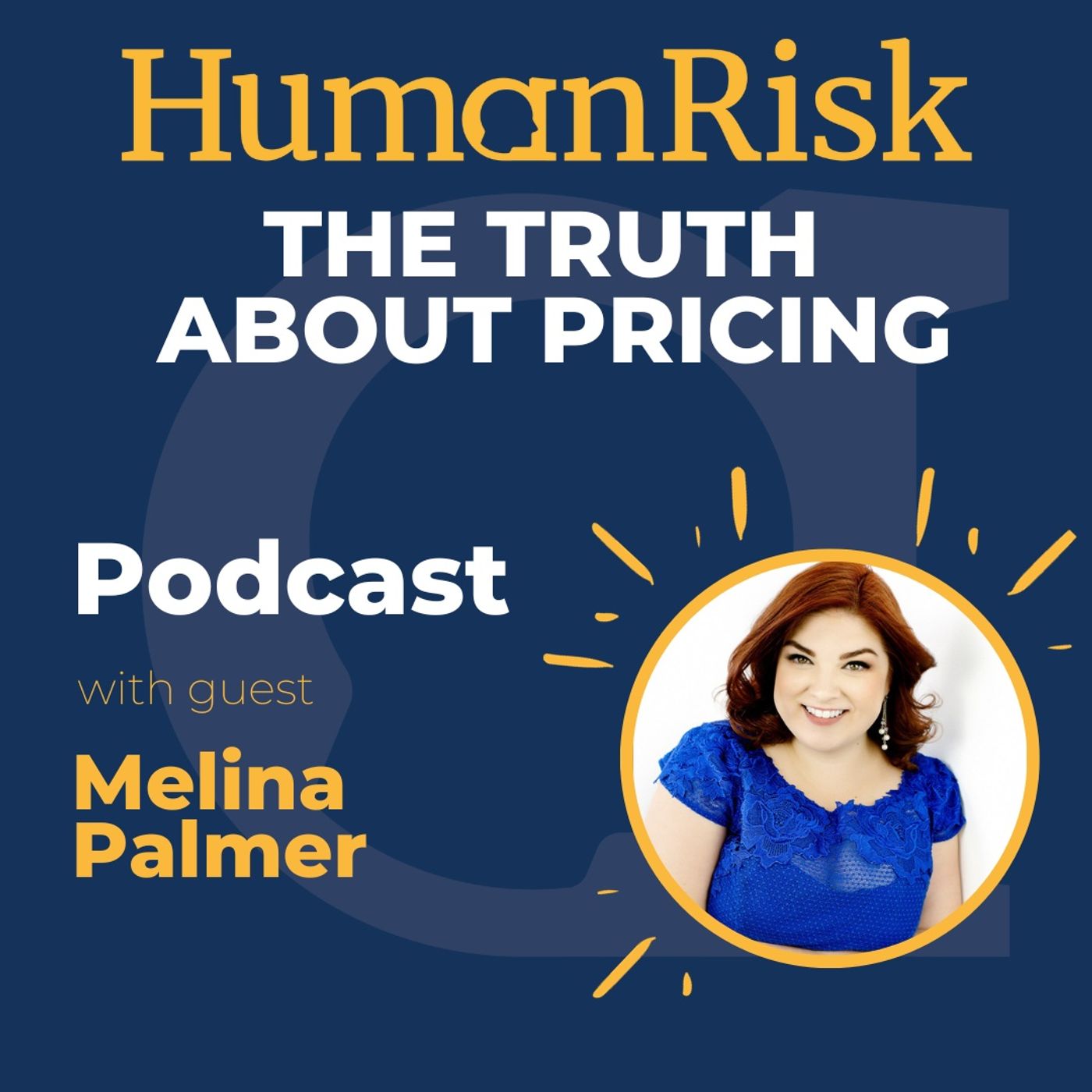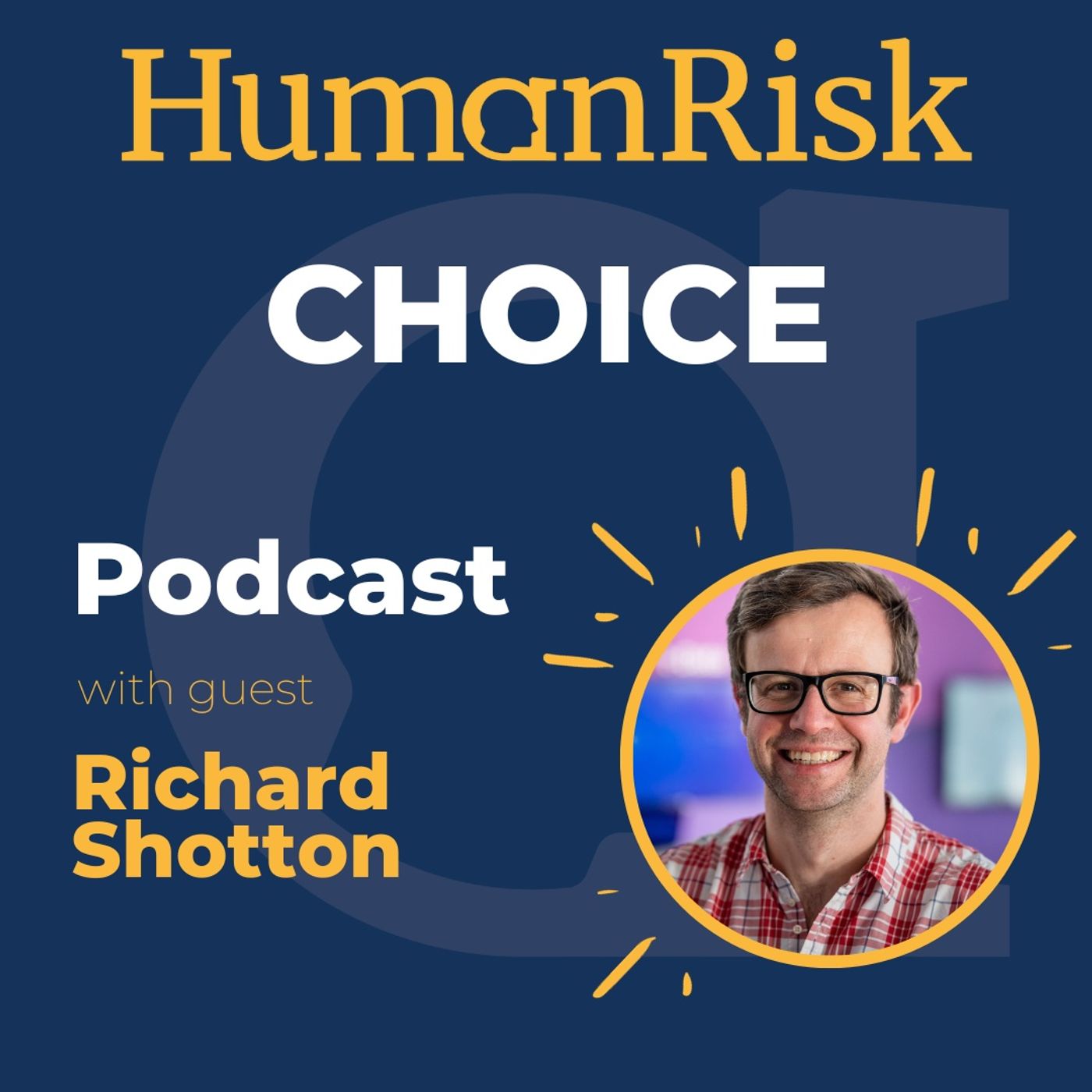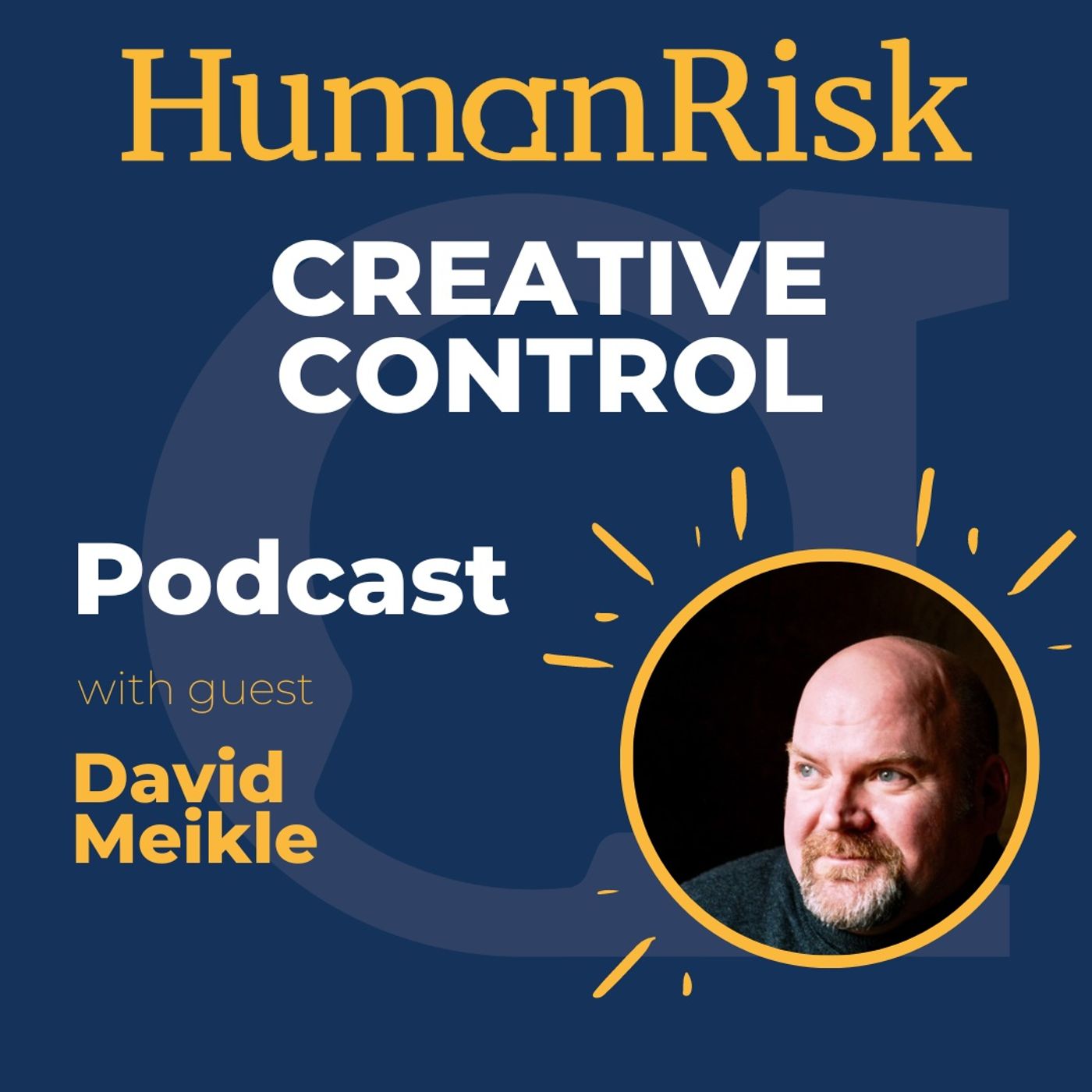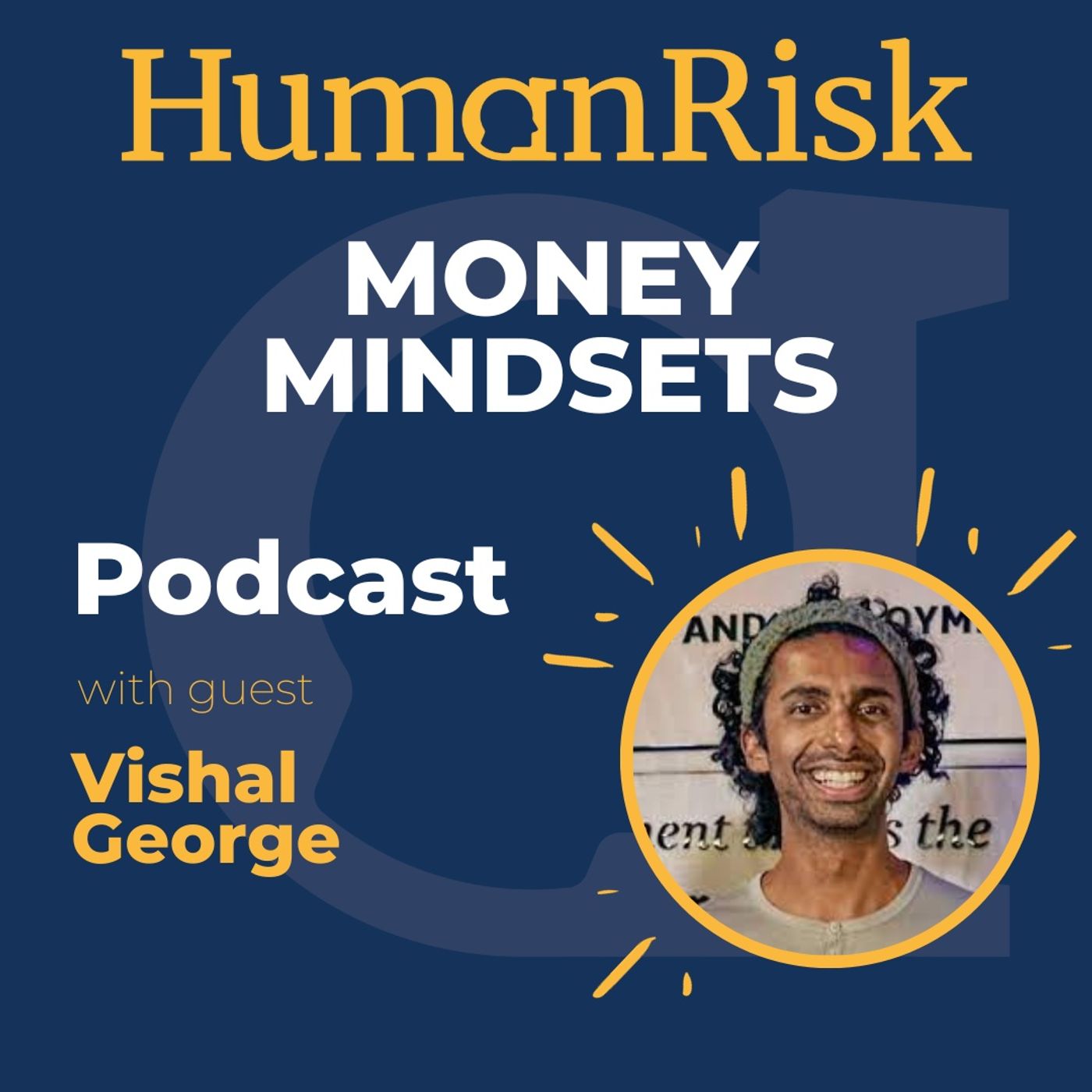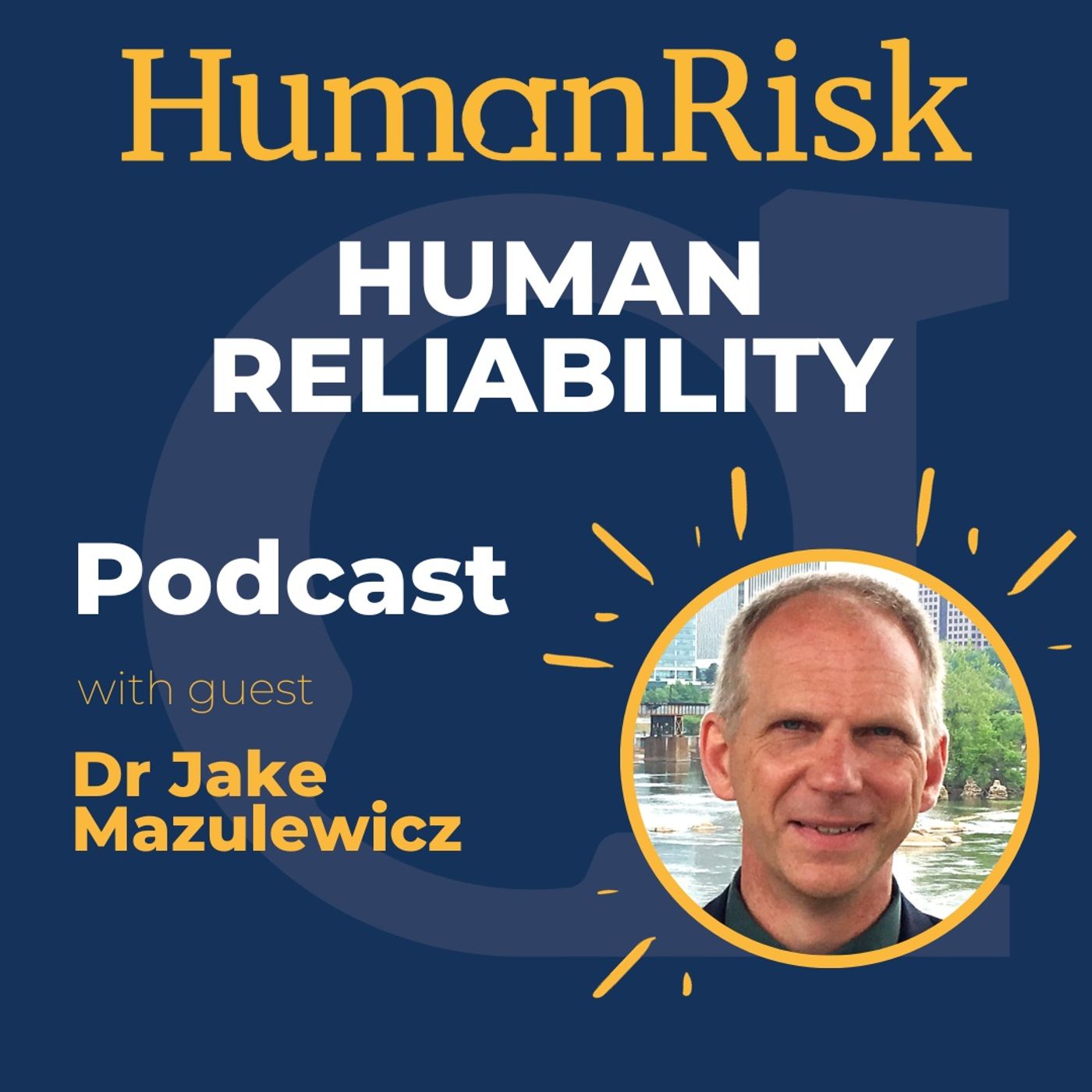Discover The Human Risk Podcast
The Human Risk Podcast

The Human Risk Podcast
Author: Human Risk
Subscribed: 88Played: 4,053Subscribe
Share
© Copyright Human Risk
Description
People are often described as the largest asset in most organisations. They are also the biggest single cause of risk. This podcast explores the topic of 'human risk', or "the risk of people doing things they shouldn't or not doing things they should", and examines how behavioural science can help us mitigate it. It also looks at 'human reward', or "how to get the most out of people". When we manage human risk, we often stifle human reward. Equally, when we unleash human reward, we often inadvertently increase human risk.
279 Episodes
Reverse
What is it that makes a job enjoyable and fulfilling? While you’re likely to have your own very individual answers to that question, chances are it’ll be to do with what you’re required to do, how much freedom you have, whether you think it’s worthwhile and how well it plays to your skillsets and interests. Yet, all too often, companies focus more on profit and less on creating environments that truly allow people to flourish. My guest on this episode, Philippa White, thinks things can be done differently. She’s the founder of TIE Leadership and the author of a brand new book, Return on Humanity: Leadership lessons from all corners of the world. In her work and in her book, she argues that it’s possible and desirable to chart a new course—one that recognizes our shared humanity as the ultimate driver of innovation, resilience, and satisfaction in the workplace. If that sounds idealistic, it is, but it’s also realistic.In our discussion, we explore:Philippa's career and what led her to do what she does now, including a fascinating story about a member of her own family;How experiential learning can help people to recognise their own strengths and weaknesses;The TIE leadership approach and the benefits this brings;Why leadership that focuses on humans over profits is more sustainable and will yield better results;And much, much more.LinksTo discover more about Phillippa, TIE Leadership, and her book 'Return on Humanity': www.tieleadership.comTo hear her TIE Unearthed podcast: https://podcasts.apple.com/gb/podcast/tie-unearthed/id1521035846 Ernesto Soroli's TED Talk on the Italians and the Zambian Hippos: https://www.ted.com/talks/ernesto_sirolli_want_to_help_someone_shut_up_and_listen?language=en
Why do we lie and cheat and why might it not always be a bad thing?On this episode, I’m speaking to a research professor who has studied lying and cheating in the natural world and what we can learn about it in the human world. My guest, Dr Lixing Sun is a Research Professor in the Department of Biological Sciences at Central Washington University. While his research focuses on biology, his interests are in connecting behaviour, evolution, psychology, and economics. In his latest book, The Liars of Nature and the Nature of Liars, Lixing explores how nature is rife with cheating and, perhaps surprisingly, how dishonesty has given rise to diversity. By exploring how everything from microscopic organisms to highly intelligent birds and mammals engage in lying and deception he explains how cheating in nature relies on basic rules which also apply to humans. In his book and in our discussion, Lixing explains the prevalence of cheating in human society and identifies the kinds of cheating that spur innovation and cultural vitality and lays down a blueprint for combatting malicious cheating such as fake news and disinformation. ResourcesLixing’s faculty page: https://www.cwu.edu/academics/biology/directory/lixing-sun.php Lixing on LinkedIn: https://www.linkedin.com/in/lixing-sun-7ba5067/ Twitter/X: https://twitter.com/LSun5 His book ‘The Liars of Nature and the Nature of Liars’: https://press.princeton.edu/books/hardcover/9780691198606/the-liars-of-nature-and-the-nature-of-liars The Psychology Today article he referred to on the show:https://www.psychologytoday.com/intl/blog/lies-and-deception/202311/how-to-outsmart-yourself
What prompted a courageous former employee of Harvey Weinstein to break her Non-Disclosure Agreement (NDA)? On this episode I'm speaking to a campaigner who came to prominence as the individual who broke the silence surrounding the misconduct of Harvey Weinstein. Formerly an assistant to Weinstein, Zelda Perkins made headlines when she came forward with allegations of sexual harassment against him. In the late 1990s, she signed an NDA, as part of a settlement which for years prevented her from speaking out about her experiences. However, motivated by the emergence of other allegations against Weinstein and the rise of the MeToo campaign, Zelda chose to break her silence and speak publicly about her experiences and the culture of secrecy enabled by NDAs. Her story has been pivotal in the global discussion about sexual harassment in the workplace, the misuse of power, and the legal and ethical implications of non-disclosure agreements. Zelda is the co founder of Can't Buy My Silence, a campaign group that is committed to end the misuse of NDAs to buy victims silence. In our discussion, we discuss Zelda’s experiences, what motivated her to break the NDA, what drives her campaigning, and what it’s like to be at the heart of a new story. You'll hear about the stresses and strains and her experience of something that nothing can really prepare you for. It's one of the most revealing discussions I've ever had on this show, with insights that are relevant to whistleblowing, transparency, campaigning, and the way organizations and society treat those who dare to speak up about injustice or wrongdoing. LinksZelda on Twitter/XThe Can’t Buy My Silence campaign, including resources for those being asked to sign NDAs or who are already subject to them.The FT article Zelda mentions in our discussion: https://www.ft.com/content/1dc8a8ae-b7e0-11e7-8c12-5661783e5589 The NYTimes article Zelda refers to: https://www.nytimes.com/2017/10/05/us/harvey-weinstein-harassment-allegations.html An interview Zelda gave to The Guardian newspaper: https://www.theguardian.com/world/2020/dec/23/zelda-perkins-there-will-always-be-men-like-weinstein-all-i-can-do-is-try-to-change-the-system-that-enables-them
How, in a world of limited resources, can we prioritise risk? Which ones should we focus on more than others?This isn't just something we need to think about in a work context. It also applies to our personal lives; where should we spend our money, time and headspace?My guest is a friend of the show who has appeared four times before (links below).Professor Magda Osman is a Professor of Basic & Applied Decision-Making at Leeds Business School. She's a psychologist by training, with a specific interest in decision-making under risk and uncertainty, folk beliefs in the unconscious, as well as an interest in examining the effectiveness of methods of behavioural change.In our discussion, we explore:why we need to prioritise risk and the challenges of doing so;the benefits of group wisdom, and the reasons we might not always find it;the risks posed by a need to drive for consensus;how social dynamics influence decision-making;the power of cognitive diversity and much, much more.To find out more about Magda, her research and her work, visit her website. You can also find her on LinkedIn.To hear previous episodes of the show featuring Magda (in the order they were recorded):'On Behavioural Interventions that Fail' 'On Unconscious Bias - what is it & can we train people to not display it?''On Compliance, Coercion & Competence''On Misinformation'
How can we make better decisions? By paying attention to good advice or information and ignoring the opposite. In a world where we're overloaded with data and opinions, it can be hard to determine what is good and what is bad advice.My guest Nuala Walsh, is the author of a new book called 'Tune In! How to make smarter decisions in a noisy world'. In it, she highlights how we make decisions and the risks of using the wrong information to make them. What are the risks of mishearing, misinformation and misjudgement, and what can we do to pay attention to helpful inputs and ignore unhelpful ones?In our discussion, we explore:Nuala's unique expertise in behavioural science, investment, and consultingHow her book "Tune In" focuses on making smart decisions amid information overloadThe significance of personal and professional stories in shaping decision-makingHow Cognitive biases and 'decision friction' affect our judgmentThe balance between intuition and deliberate thought in ethical decisionsCorporate speed in decision-making vs. the importance of careful deliberationThe 'trilogy of error'—blind spots, deaf spots, and dumb spots—in perception. 'Perimeter traps' that represent pitfalls in judgment and decision-makingNuala's personal transformation through writing and its impact on legacy; Practical advice on applying smarter decision-making in everyday life.and much, much more.To learn more about Nuala, her work and 'Tune In': https://www.nualagwalsh.com/
What does storytelling have to do with managing risk? On this episode, I’m speaking to novelist, playwright, and screenwriter Preethi Nair. She also helps people who want to tell their stories to identify the one that will resonate and tell them in the best possible way. We all know the power of storytelling. It’s how we learn as kids and how we share information as adults. The risk angle here is that if we want people to do the things we want them to do, and not do the things we don’t, then stories are a powerful tool in persuading them. In our discussion, we explore:What makes a great story;Why storytelling matters;Why we can often find it hard to tell the right stories;What we can do to identify the stories we could and should be telling;How Preethi came to be a storyteller;And much, much more. Including, of course, Preethi’s own story. Additional EpisodeIf you enjoy this episode, then I also recommend listening to my discussion with James Victore on “Creative Courage’. James helps people (in his words) to ‘get paid to do what they love’. Many of the topics we discussed here chime with that discussion. You’ll find it here: https://www.humanriskpodcast.com/james-victore-on-creative-courage/ Links To find out more about Preethi, her books and her consulting work - https://preethinair.com/Preethi on LinkedIn - https://www.linkedin.com/in/preethi-nair-author-keynote-speaker-md-29471a4/ The NYTimes ‘Significant Objects’ study - https://significantobjects.com/ The Encyclopaedia Britannica - https://en.wikipedia.org/wiki/Encyclop%C3%A6dia_Britannica
What can business learn from improvisation? If you listened to the previous episode of the shwo, you'll know the answer. If you haven't yet done so, then I recommend dojgn that before listening to this. Because this is Part Two of my discussion with Heather Urquhart and it lfows naturally on from Part One.Meet Heather UrqhuhartMy guest Heather Urquhart is a professional improviser who not only performs improv but also works to help busineses to manage uncertainty and drive creativity via her firm 'And Also Improv'.In Part Two of our discussion, we look at the behind the scenes of improv. How can an improv compoany have a code of conduct?How do you design rules for a business that is about creativity?Why is it so difficult for people to say 'I don't know'.And much more. This is Part Two of a two part discussion. Part One is here: https://www.humanriskpodcast.com/heather-urquhart-on-improvisation-part-one/Links The moment when Hollywood Director Michael Bay leaves the stage during a launch event: https://www.youtube.com/watch?app=desktop&v=R4rMy1iA268Heather’s website: https://www.heatherurquhart.co.uk/Her company ‘And Also’ Improv: https://andalsoimprov.com/The MayDays, the Improv troop that heather is part of: https://www.themaydays.co.uk/speaker/heather-urquhart/ 'Showstoppers The Musical': https://showstopperthemusical.com/
What can business learn from improvisation? On the face of it, a form of entertainment that involves making things up as you go along, seems to be filled with human risk and not at all helpful in the business world.But actually, the skills that improvisers use to entertain us, are incredibky useful in businesses to drive better decision-making, The techniques that allow them to respond to unexpecte situations or come up with creative ideas, are incredibly helpful in a business context.Having previously explored some of the dynamics of improv with Comedy Store director, author and perfomer Neil Mullarkey, I wanted to dive a little deeper into the subject.Meet Heather UrqhuhartMy guest on this episode Heather Urquhart is a professional improviser who not only performs improv but also works to help busineses to manage uncertainty and drive creativity via her firm 'And Also Improv'.In our discussion, we look how the dynamics inherent in improv can help to improce the quality of decision-making and ideas within businesses.Amongst other things, we look at how active listening, a non-judgmental approach to creative ideas can transform all aspects of an organization, not just the traditionally 'creative' ones. True to the theme, Heather and I set out on our conversation with an open agenda. Not only did that take us to some intesting and unexpected places, but it also meant that we just kept going. So much so, that there’s too much for just one episode. So, this is Part one of a two part discussion. Part Two is coming soon.Links My previous discussion with Neil Mullarkey: https://www.humanriskpodcast.com/neil-mullarkey-on-being-in-the-moment/Heather’s website: https://www.heatherurquhart.co.uk/Her company ‘And Also’ Improv: https://andalsoimprov.com/The MayDays, the Improv troop that heather is part of: https://www.themaydays.co.uk/speaker/heather-urquhart/ 'Showstoppers The Musical': https://showstopperthemusical.com/
What is burnout, and how can we prevent it?We're increasingly hearing about the idea of 'burnout', which the World Health Organisation has defined as a condition "resulting from chronic workplace stress that has not been successfully managed". Recent high profile resignations, including Jacinda Ardern the former PM of New Zealand and Jürgen Klopp, the Manager of Liverpool Football Club — both citing not having enough energy to continue to do their jobs — are merely illustrative of a dyanmic that can impact us all.On this episode, I'm speaking to Sabrina Ahmed, who helps people to manage the risks of burnout using art, creativity, curiosity and playfullness.In our discussion, we explore:the signs and causes of burnout;how burnout can impact the self-employed, as much as the employed;the benefits of art, creativity, curiosity and playfeullness in combatting the effects of burnout;how aligning our personal values ith our professional lives can help mitigate burnout;the power of job craftingand much,much more.Sabrina AhmedTo find out more about Sabirna and the owrk that she does visit her website https://openintrovert.com/You can find her on Twitter/X at: https://twitter.com/sabrinacoachingSabrina's Substack blog: https://sabrinaahmed.substack.com/
What is Healthcare Coaching? If I say the word ‘doctor’ to you — in a medical, not academic, sense— you’ll probably think of someone in a white coat with a stethoscope who makes medical assessments and prescribes treatments and drugs to patients. Which, of course, is what they do doBut a word that probably wouldn’t come to mind when you think of doctors is ‘coach’. Yet, that’s the role that my guest on this episode, Dr Ollie Hart, thinks is a key part of helping patients live longer, healthier lives. Having worked as a general practitioner in the UK’s NHS National Health Service, Ollie realised that in many cases, what would help patients weren’t prescriptions but rather the kind of support that you might, in other contexts, expect from coachesHe’s the co-founder of a Healthcare Coaching business that seeks to empower patients as part of the support they receive. As you’ll hear, he’s not suggesting coaching as a replacement for all forms of medical treatment, but for certain conditions, supporting patients through coaching can be incredibly powerful in increasing overall well-being.In our discussion, we explore Ollie’s medical career, how he came to see the value in healthcare coaching and how and where it can help patients. As well, of course, where it is less effective.As you’ll hear, several decades ago — let’s not worry about exactly how many — Ollie and I were classmates. And because one or two of our teachers liked to have the class sat in alphabetical order — presumably so they didn’t need to memorise anyone’s name, we’d often sit next to each other.Thanks to LinkedIn, we recently reconnected and got talking. In doing so, we realised that although we’re working in very different fields, the fundamental principle of thinking about the humans whose behaviour we’re trying to influence — in his case, in a medical context, in mine a compliance and ethics one — is identical, which is why I really wanted to get him onto the show.I think this is a fascinating approach that illustrates how, if we want to solve problems — particularly those obviously relating to humans — where a behavioural approach of understanding what I refer to as ‘not how we would like people to behave, but how they are likely to behave’ can be really powerful. And not just in the medical field. The ideas Ollie is sharing have a much wider resonance. Resources To learn more about Ollie and his work:Peak Health Coaching - www.peakhealthcoaching.comOllie on LinkedIn - https://www.linkedin.com/in/ollie-hart-47669340/Ollie on Twitter/X - https://twitter.com/peakhealthcoachOther episodeIf you liked this episode, then you might also be interested in:Niall Downey, a cardiothoracic surgeon who became an airline pilot - https://www.humanriskpodcast.com/niall-downey-on-mistakes/ Dr Gordon Caldwell on medical bureaucracy - https://www.humanriskpodcast.com/dr-gordon-caldwell-on-medical-bureaucracy/
How can businesses do the right thing? What does that even mean and why does or should it matter?What is Business Ethics? Business ethics used to be a case of dealing with things like bribery and fraud, which companies tried to — and often did — manage with rules and processes. But nowadays, in a world where every employee and consumer has the ability to go viral on social media, it’s a much harder dynamic to manage.Businesses are under increasing scrutiny, not just for their business practices and supply chains but also for their position on issues such as racial injustice and quality.The idea that they’re simply there to maximise shareholder value, while not breaking the law is no longer a tenable approach. Meet Alison TaylorMy guest on this episode is Alison Taylor. She’s a friend of the show — this is her third appearance (links to the previous two below). Alison is a Clinical Associate Professor at NYU-Stern School of Business and Executive Director of Ethical Systems. She has spent the past two decades consulting with multinational companies on risk, anti-corruption, sustainability, human rights, culture and behaviour, stakeholder engagement, ESG, and ethics and compliance.She is also the author of a brand new book out this week called ‘Higher Ground: How Business Can Do The Right Thing In A Turbulent World’. What We DiscussIn our discussion, we explore:what inspired Alison to write the book;how she went about it;the parallels between corporate and personal decision-making;what she learned in writing it;the balance between profit, sustainability, and social/political responsibility.;the challenges of promoting diversity within organizations.and much, much more.LinksTo find out more about Alison, her work at NYU and Ethical Systems and her book ‘Higher Ground’ visit her website: www.alisontaylor.coTo hear the previous epsiodes of the show featuring Alison talking about:Ethics: what is it, why does it matter? 🎧 👉 https://www.humanriskpodcast.com/alison-taylor-on-ethics-/ESG: Environmental, Social & Governance 🎧 👉 https://www.humanriskpodcast.com/alison-taylor-on-environmental-social-governance/
What happens when a surgeon decides to become an airline pilot? You get some amazing insights into mistakes, how they happen and what we can do to mitigate them.That surgeon and now pilot is my guest Niall Downey. He’s also the author of a book called ‘Oops! Why Things Go Wrong’: Understanding and Controlling Error’ He began his career as a doctor, where he becaeme a cardiothoracic surgeon. After twelve years of medical training, Niall decided to change course and retrained as an airline pilot with Aer Lingues, initially combining aviation with medicine by working as an Accident and emergency doctor before focusing full-time on aviation. If there’s one industry that knows how to manage risk, it’s airlines. While there might be issues with things like luggage and IT failure, when it comes to safety in the skies, the airline industry has a very good track record, particularly when we consider the number of planes in the sky at any one time. Niall has made it his mission to bring the methods aliens use to mitigate risk into the medical world. In our discussion, we explore: Niall’s career and what led him into medicine and then the airline industry:The similarities and differences of risks and risk management in the two sectors;How airlines and the medical profession react to mistakes;The importance of a just culture and psychological safety supported by regulators in getting people to speak up;How simplifying reporting processes can make it more likely people will report things;The ‘Swiss Cheese’ model for risk management;The realities of being a pilot and the importance of having two in the cockpit;Niall’s thoughts on what medicine and healthcare can learn from the airline industry;How checklists can reduce errorsand much, much more. ResourcesTo learn more about:Niall on Social MediaTwitter/X: https://twitter.com/nialldowneyLinkedIn: https://www.linkedin.com/in/niall-downey-84abb433?originalSubdomain=ukNiall’s firm Framework Health: http://frameworkhealth.net/ Niall’s book ‘Oops! Why Things Go Wrong’: Understanding and Controlling Error’ Liffey Press (publisher): https://theliffeypress.com/oops-why-things-go-wrong-by-niall-downey.html
What happens when companies outside financial services are required to comply with regulations such as AML (Anti-Money Laundering)? As we all know from our personal experiences of banks that want to verify who we are and where money is coming from or going to, the rules are complex. That’s challenging enough if you’re a bank. But if you’re an art dealer, a real estate agent or someone else working in the field of high-value goods, that’s even harder. Particularly if the rules aren’t something you’re familiar with. My guest on this episode, Solène Clément, is a lawyer who supports clients in this space in meeting their regulatory obligations in a pragmatic way. That doesn’t mean not complying with the rules or bending them. It means bringing the gap between regulatory objectives and the practicalities of delivering them on the ground. She’s also the President of the Anti-Money Laundering Observatory, a body that seeks to get regulators to understand the practical challenges of their regulations and those subject to them to improve their knowledge and understanding of them. To find out more about Solène and her work, visit: https://clementavocats.com/ For more on the Anti-Money Laundering Observatory (OLAB): https://clementavocats.com/index.php/accueil/olab/
Authenticity is often praised, and inauthenticity is criticised. We want people to be themselves. But what happens if the society we’re in isn’t supportive or even hostile toward who we really are? Or we don’t yet know. That’s the challenge facing many LGBTQ+ people in relation to coming out.It’s the subject of a brand new book called ‘Countless Sleepless Nights’ which tells the real-life stories of people who, because of their sexuality, have had to or are dealing with the challenges of whether, how and when to come out. Not just people who live in societies where they have rights but also those living in regimes where being honest about your sexuality risks being imprisoned or killed.The book’s author is Carina Maggar, and she’s my guest on this episode. Carina is a creative copywriter who has been on the show before talking about her first book ‘How To Make Work Not Suck’. The book came about because Carina is herself gay and had her own coming out experience. I’m fascinated by this subject on a number of levels. As a straight man, I’ve never had to contend with the challenge of coming out and what that means. Yet it’s a very common experience, and I think it’s helpful to have an appreciation of what others are going through. I hope this episode can make those of us who have no experience of coming out to be more empathetic towards those who are or might go through it.Then there’s a human risk angle. If we want to get the best out of everyone — either societally or in a work context — then we need to be inclusive and not have people having to pretend they’re something they’re not. Spending your entire life being unable to be honest is debilitating, and it doesn’t bring the best out of anyone. Finally, and most importantly, it’s about shining a light on the fact that some people can’t be who they really are, and their lives are in danger as a result. That’s not right, and we need to talk about it. Resources To learn more about Carina and her first book ‘How To Make Work Not Suck’ go to her website: https://www.carinamaggar.com/To order ‘Countless Sleepless Nights’: https://www.laurenceking.com/products/countless-sleepless-nightsTo hear Carina’s previous appearance on the show: https://www.humanriskpodcast.com/carina-maggar-on-how-to-make-work-not-suck/
What’s the most effective way to manage cyber risk? The obvious answer is to have more sophisticated security systems. My guest on this episode thinks the answer is humans.That’s because behind every cyber attack, there is a human, and the biggest point of vulnerability within an organisation is its humans. If we can better understand humans and how they behave, we can be more effective at managing cyber risk.That’s the view of my guest on this episode, Sarah Armstrong-Smith. She’s the Chief Security Advisor at Microsoft and a leading expert in the cybersecurity space. She's also the author of a brilliant new book called Understanding the Cyber Attacker Mindset, in which she explores the human dynamics behind cyber attacks. In other words, why do the people who launch cyberattacks do so? If we can understand that, we can start to focus on the root cause of the problem.In our discussion, we explore: The crucial role human behaviour plays in cybersecurity;The emotional and psychological aspects that can affect an organization's digital defences.Why organisations need a cybersecurity strategy that is people-focused and considers the motivations of cyber attackers.The importance of recognizing the internal cultural dynamics within an organization that may inadvertently aid cyber attackers;How cognitive diversity can reinforce cyber defences.How societal and cultural influences contribute to the ecosystem of cybercrime.Why victim-blaming when it comes to cyber attacks is counter-productiveHow phishing campaigns that punish those who fail tests are a bad idea;The Seven Sins of Cyber Crime;The benefits of fostering a supportive workplace culture.And much much more.To learn more and to pre-order Sarah’s new book ‘Understand the Cyber Attacker Mindset: Build a Strategic Security Programme to Counteract Threats’: https://www.amazon.co.uk/Understand-Cyber-Attacker-Mindset-Counteract/dp/1398614289#You can find Sarah:On LinkedIn: https://www.linkedin.com/in/sarah-armstrong-smith On Twitter/X: https://twitter.com/SarahASmith75
What determines the price of an item or service? How can we price things so that people want to buy them but also so that we feel it’s fair? Whether (like me) you’re in business and have to sell, or you’re negotiating a salary or looking to buy or sell a house or a car, pricing matters.My guest on this episode, Melina Palmer, is the author of a new book, The Truth About Pricing: How to Apply Behavioral Economics So Customers Buy (Value Based Pricing, What Your Buyer Values). She’s also the host of the Brainy Business podcast and has been on the show before (links below). TopicsIn our discussion, we explore:What makes effective pricing strategies in business and our personal lives;How psychology influences customer purchase decisions;The importance of storytelling and anchoring effects on price perception;How brand perception impacts the perceived value of products;Why a grilled cheese sandwich might be worth $214;How heuristics and cognitive biases help and hinder us as we buy and selling;The Challenges and complexities of pricing in the digital age; andThe relationship between price and identity and how we value items we purchase.and much, much more LinksTo find out more about Melina’s Brainy Business podcast and her work as a speaker, coach and trainer visit thebrainybusiness.comTo download free sample chapters from her books at brainy business.com/human riskFind her on LinkedIn https://www.linkedin.com/in/melinapalmer/To her her previous apparenace on this show: https://www.humanriskpodcast.com/melina-palmer-on-using-behavioural/On the show, we referred to: The book Blindsight: The (Mostly) Hidden Ways Marketing Reshapes Our Brains by Matt Johnson and Prince Ghuman: https://www.goodreads.com/en/book/show/52225003The $214 Grileld Cheese Sandwich: https://www.cnbc.com/2017/10/25/most-expensive-grilled-cheese-in-the-world-from-serendipity-3.htmlThe Virgin Mary sandwich: https://www.miamiherald.com/news/local/article223941560.html
What drives the choices we make, and how can we influence the choices that others make?On this episode, I’m speaking to an expert in human decision-making. Richard Shotton is a behavioural science practitioner who has written two best-selling books, ‘ The Choice Factory’ and ‘The Illusion of Choice’. Having begun his career in marketing, Richard now helps companies apply behavioural science to solve problems, particularly, as the titles of his books imply, when it comes to influencing the choices people make. During our discussion, we talk about:Richard’s career that led him to found Astroten, his own behavioural science practice;the wonderful story of how the company got its namehow the appliance of behavioural science can help solve businessExamples of Richard’s approach to doing research and how those can be applied in any context;how companies can efficiently run experiments to see what works and what doesn’tsome of the critical behavioural dynamics relevant to Richard’s work, which he explores in his books.And much, much more.What I love about listening to Richard is that he’s not just sharing his deep technical knowledge in ways that are easy to digest; he’s also very good at coming up with practical ideas for how to deploy Behavioural Science to meet objectives. And he’s great fun to talk to.LinksRichard and his company Astroten- https://www.astroten.co.uk/Find him on Twitter/X - https://x.com/rshotton? and on LinkedIn - https://www.linkedin.com/in/richard-shotton/Richard’s first book ‘The Choice Factory’ - https://www.astroten.co.uk/the-choice-factory His latest book ‘The Illusion of Choice’ - https://www.harriman-house.com/illusionofchoice The ‘Astroten’ Hofling Hospital Experiment - https://en.wikipedia.org/wiki/Hofling_hospital_experiment The ‘Stolen Thunder Effect’ - https://www.ojp.gov/ncjrs/virtual-library/abstracts/effects-stealing-thunder-criminal-and-civil-trialsAn example of Zanussi’s Appliance Of Science ad campaign - https://youtu.be/DWbnxCe9xFc?si=wnaabpZrzMUA8kNcThe Keat’s heuristic - https://en.wikipedia.org/wiki/Rhyme-as-reason_effectThe McGlone & Tofighbaksh Experiment - https://www.sciencedirect.com/science/article/abs/pii/S0304422X99000030Monadic Testing - https://conjointly.com/blog/what-is-monadic-testing/Professor Robert Cialdini’s research on the Petrified Wood Forest in Arizona - https://www.tandfonline.com/doi/full/10.1080/15534510500181459
How can we manage people who are doing creative work? On the one hand, letting someone do what they want feels incredibly risky. On the other hand, creativity requires a degree of freedom, experimentation and agency. That’s a particular problem in the creative fields, but it’s also a broader challenge. In the 21st century, the jobs people are doing are increasingly ones that require some element of creativity. Creativity is that it doesn’t always lend itself to being managed in traditional ways. Unlike setting someone a task where they slavishly need to follow instructions, creative tasks require a different form of supervision. The challenge with that is that as organisations try to mitigate the risk of creative activities, it’s very easy to end up in situations where responsibility is transferred for the creative task, but the requisite amount of control to deliver it isn’t. My guest is David Meikle. He’s a consultant to the advertising market, where he helps companies to be more effective at hiring and managing advertising agencies. To learn more about David and his books visit https://tuningup.co.uk/ Links to topics we discuss: The podcast where Jon Evans interviews Dr Ian McGilchriest: https://www.youtube.com/watch?v=tY89D1UC9Dw Iain’s website: https://channelmcgilchrist.com/ The Hamlet cigar advertisements (14:55) https://www.youtube.com/watch?v=hJqN7RNeitw The Sainsbury’s Mog The Cat advertisement (18:15): https://www.youtube.com/watch?v=kuRn2S7iPNU The Cadbury gorilla advertisement (18:18): https://www.youtube.com/watch?v=La7B8mBnTXs The Ocean Spray advertisement (19:28): https://www.thedrum.com/news/2020/10/07/ocean-spray-finally-reacts-viral-skateboarding-tiktok Orlando Wood of System One Group: https://system1group.com/team/orlando-wood Anthony Bourdain’s Kitchen Confidential: https://en.wikipedia.org/wiki/Kitchen_Confidential_(book)Blair Enn’s Win Without Pitching Manifesto: https://www.winwithoutpitching.com/the-manifesto/
Why do we sometimes make bad decisions in relation to money and what can we do about it? My guest, Vishal George, is a Behavioural Scientist who has recently published a book called ‘Money Mindsets: Science-Based Stories to Rewire your Money Beliefs, Goals, & Habits’. In it, he explores that he way we behave when it comes to money, comes from beliefs about it, that we’ve adopted from our families, socio-cultural environment, and significant life events. They’re almost like scripts that are handed to us. Yet, often, we don't even know who the author is of our scripts.What, asks Vishal, if we can rewrite our own money story?The idea behind his book isn’t to change what we do with our money. Rather, it offers mindsets to change how we think about money. If we become aware of why we do what we do with our money, we can make sure our behaviours with it are aligned with our priorities.Since many incidents of huamn risk are caused by money, this topic is perfect for the show. In our discussion, we explore how Vishal came to write the book and what he hopes to acheive with it. I also get some thoughts from him on how this impacts his approach to business and what he’s learend from his reasearch. And he turns the tables and asks me a question.Resources To learn more about Vishal, his compnay ‘Behavioural By Design’ visit https://www.behaviouralbydesign.com/For more on his book ‘Money Mindsets’ https://www.behaviouralbydesign.com/money-mindsetsTo read about Diversifi, the global Behavioural Science practitioner network that both Human Risk and Behavioural By Design are part of, visit https://www.diversifiglobal.com/Mount Taranki, the mountain Vishal is trying to climb: https://en.wikipedia.org/wiki/Mount_TaranakiThe Save The Change program that encourages saving: https://www.asb.co.nz/banking-with-asb/save-the-change.html
What do you think of when you hear the word 'error'? It's highly likely you'll think of it negatively as a defect. The obvious way to manage defects, particularly in safety-critical industries, is to have detailed procedures, strict compliance, and zero tolerance for errors. But we know that this doesn't always work. After all, if it did, we'd have far fewer errors.My guest on this episode takes a different approach. He specializes in helping organizations, particularly safety-critical ones where the cost of getting something wrong can be death or injury, to reduce errors, improve safety and build trust. He calls this human reliability. His name is Dr. Jake Mazulewicz, and he's been a firefighter, an emergency medical technician and a military paratrooper.Nowadays, he brings all of those experiences to bear in helping organizations design processes and cultures that allow humans to manage the complexities that don't always allow themselves to be neatly codified into standard procedures. As you'll hear, he's got some fascinating ideas about designing safety models that flex to meet the situation's needs. Key Moments In The Show (mins:secs)02:14 — Dr. Jake’s background05:25 — Mechanistic vs. Adaptive systems06:28 — The big problem: too many leaders treat ALL systems as Mechanistic systems09:10 — What to say to a commercial pilot when you’re walking off their aircraft after the flight lands10:40 — Four work guidance modes11:00 — 1) Procedures11:53 — 2) Guidelines like, “To find out what an organization values, follow the money."13:00 — 3) Principles like “A jury doesn’t decide what to believe. A jury decides who to believe."21:20 — 4) Tacit Knowledge — You can solve complex problems, but can’t explain how26:40 — “All models are wrong, but some of them are useful.”31:10 — How one team of electricians dramatically improved safety by using FEWER procedures35:57 — Letter of the law vs. spirit of the law38:20 — Have you heard of Philip K. Howard?... "Let’s pretend I haven’t.”42:10 — We write rules when we don’t have enough trust44:55 — Build trust by overcommunicating your intentions45:25 — “Commander’s Intent” in military mission plans47:55 — Listen for "Weak Signals" like hearing, “I’ll do whatever it takes…"50:40 — Stay resilient by catching a system before it goes “exponential”54:00 — Chris Argyris’ 17-word, 4-step recipe for creating a toxic work culture57:10— A new Early Warning System58:20 — Ask an expert, “What’s a 'Weak Signal' in your field, and what does it mean?”1:04:55 — Why a non-punitive approach is so helpful and so uncommon1:10:10 — How to get in touch with Dr. Jake — reliableorg.comFurther InformationTo find out more about Praxtical Human Performance For Leaders visit www.reliableorg.com LinkedIn: https://www.linkedin.com/in/jake-mazulewicz/


